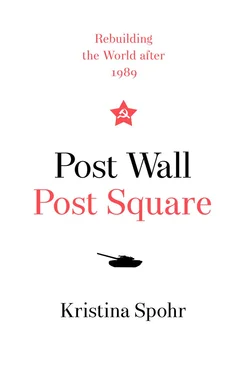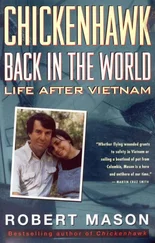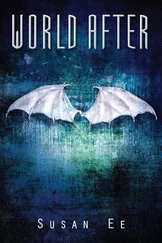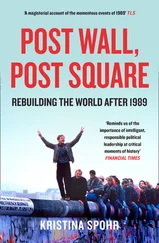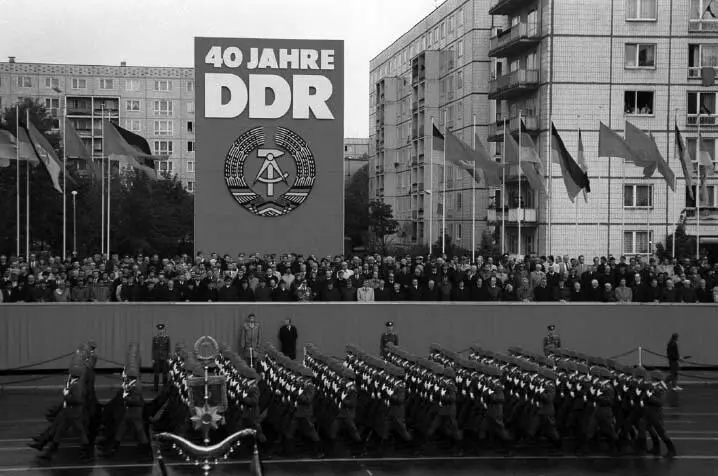
Happy birthday or last rites? East Berlin, 7 October 1989
After the parade, ‘Gorby’ and ‘Honni’ met for almost three hours alone and then with the whole SED Politburo. Little went to plan; in fact Honecker and Gorbachev were simply not on the same page. They ended up talking past each other. Gorbachev, in a typical big-picture performance, enthused about his new thinking and the current ‘revolution within a revolution’ (in other words, not negating October 1917) while also underlining communism’s ongoing historical competition with capitalism, albeit in a changing world. Honecker, on the other hand, heaped praise on the GDR as one of the world’s great economies. Fifteen billion Ostmark had been invested in the microchip industry, including the great state conglomerates Mikroelektronik Erfurt, Carl Zeiss Jena and Robotron Dresden. Systems had been automated and production raised by 300–700%. He left nobody in doubt that he was determined to stick to the old form of state socialism. ‘We will solve our problems ourselves with socialist means,’ he insisted.
Their speeches to the Politburo followed similarly divergent courses. But by now Gorbachev had heard enough. He told his East German audience a story about miners in Donetsk who ‘taught a good lesson’ to the secretary of the regional party: ‘we often see that some leaders cannot pull the cart any more, but we don’t replace them, we are afraid to offend them’. As he looked knowingly around the SED Politburo members, no one could be under any illusions that here was a direct reference to the seventy-seven-year-old hardliner Honecker. ‘If we lag behind, life will punish us straight away,’ he concluded pithily. Later, before the world media, his press spokesman Gerassimov condensed this into what became a celebrated aphorism: ‘Life punishes those who come too late!’ [177]
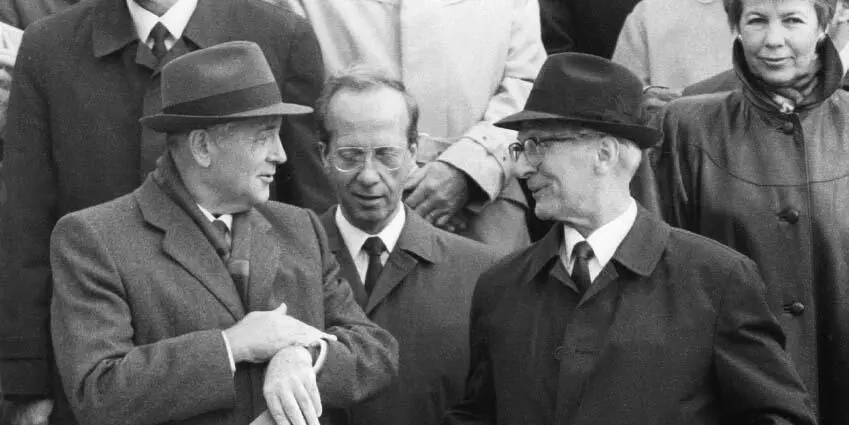
The clock is ticking, Erich! Gorbachev with Honecker
It had been twenty-four hours of mixed messages. Having eventually decided to attend the GDR’s festivities, Gorbachev clearly intended to offer the Soviet Union’s most prized Cold War ally a measured show of solidarity. After the extraordinary images of the recent exodus and escalating popular demands for reform and democracy across the cities of East Germany, Gorbachev’s primary mission was to soothe the frazzled nerves in East Berlin and to help prevent a combination of social frustration and political paralysis from increasing to the point where it could destabilise the East German state. At the same time, however, Gorbachev made clear that Moscow would not interfere in East Germany’s problems – problems, as he put it, that were not merely about ‘sausage and bread’ but about the need for ‘more oxygen in society’ which demanded a totally new approach by the GDR. Ultimately Honecker himself would have to have the courage to undertake political reform. Gorbachev was no longer prepared to prop him up. [178]
As regards the international situation, however, standing on the Cold War front line in the heart of Europe, the Soviet leader was defiant. In his speech during the gala dinner on the 6th, he rebutted accusations that Moscow bore sole responsibility for the continent’s post-war division and he took issue with West Germany for seizing on his reforms to ‘reanimate’ dreams of a German Reich ‘within the boundaries of 1937’. He also specifically rejected demands that Moscow dismantle the Berlin Wall – a call made by Reagan in 1987 and again by Bush in 1989. ‘We are constantly called on to liquidate this or that division,’ Gorbachev complained. ‘We often have to hear, “Let the USSR get rid of the Berlin Wall, then we’ll believe in its peaceful intentions.”’ He was adamant that ‘we don’t idealise the order that has settled on Europe. But the fact is that until now the recognition of the post-war reality has insured peace on the continent. Every time the West has tried to reshape the post-war map of Europe it has meant a worsening of the international situation.’ Gorbachev wanted his socialist comrades to embrace renewal, but he had no intention of dismantling the Warsaw Pact or abruptly dissolving the Cold War borders that had given stability to the continent for the last forty years. [179]
And so, each in his own way, these two communist leaders were hanging on to the past. Gorbachev adhered to existing geopolitical realities, despite the cracks opening up in the Iron Curtain. Honecker clung to the illusion that East Germany remained a socialist nation, united by adherence to the doctrines of the party.
The intransigence of the GDR regime during the celebrations, and the growing social unrest of recent weeks, made for a potentially explosive mix. Within less than two weeks Honecker had been ousted. And only a month after the GDR’s fortieth-birthday party, on 9 November, the Berlin Wall fell without a fight. The Wall had been the prime symbol of the Cold War, the barrier that contained the East German population and the structure that held the whole bloc together. The party of 7 October proved to be a theatre of illusions. Yet there was nothing inevitable about what came next.
Chapter 3
Reuniting Germany, Dissolving Eastern Europe
The 9th of November 1989. Helmut Kohl was beside himself. Here he was, sitting at a grand banquet in the Radziwill Palace in Warsaw with the new leaders of Poland – Mazowiecki, Jaruzelski and Wałęsa – in a wonderfully festive atmosphere, together with a delegation of seventy, including Foreign Minister Hans-Dietrich Genscher and six other ministers of his Cabinet. But all around him people were murmuring ‘ Die Mauer ist gefallen! ’ (‘The Wall has fallen!’). Throughout that Thursday evening, as the chancellor tried to make polite chit-chat with his hosts, he kept being interrupted – receiving updates on little slips of paper and being called out to take phone calls from Bonn. All the while Kohl was desperately trying to think. [1]He was in the wrong place at the right time – the most dramatic moment of his chancellorship, perhaps of his whole life. What should he do?
Moment of reconciliation: Kohl, Mazowiecki and Genscher in Warsaw
Kohl’s mood had been very different when the dinner started. His five-day visit, in the planning for months, was intended as a milestone in West Germany’s relations with one of its most sensitive neighbours. History hung heavy in 1989. This was fifty years after Hitler’s brutal invasion of Poland, beginning a war that led to the extermination of 6 million Polish citizens (half of them Jewish), the obliteration of the city of Warsaw after the abortive rising of 1944, and the absorption of Poland into the Soviet bloc in 1945. Germany had a lot to answer for, and the process of reconciliation by Bonn had been long and painful. It had been an SPD chancellor, Willy Brandt, who made the first and more dramatic move in December 1970, dropping to his knees in silent remorse at the memorial to the Warsaw Ghetto. Kohl’s trip was the first time a Christian Democrat chancellor had visited Poland. But he was not simply catching up with his political rivals and trying to redress the past; he also wanted to make a statement about the future, about the Federal Republic’s commitment to Poland’s resurrection as a free country in its post-communist incarnation. So the German chancellor had been delighted to sit down at the banquet that evening. Delighted, that is, until he got the news from Berlin. [2]
Читать дальше
